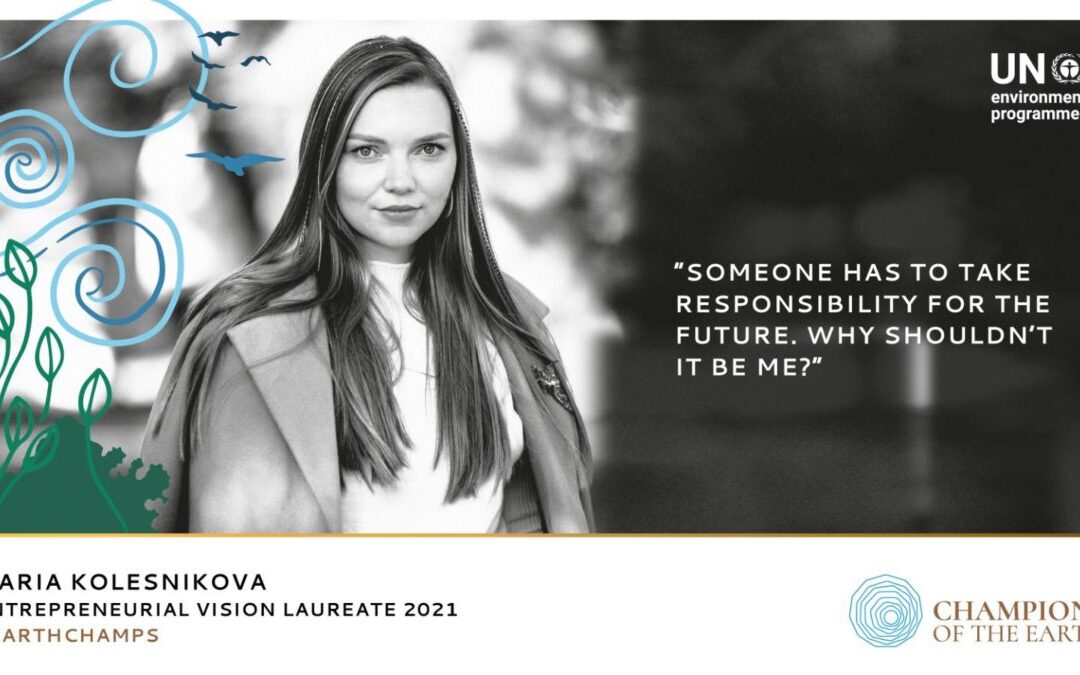Maria Kolesnikova was awarded the highest UN award for environmental conservation. Thus, Maria Kolesnikova became the first person from Central Asia to receive this honor. A delegation from UNEP, led by Director Bruno Pozzi, arrived in Bishkek from Europe and Kazakhstan specifically for this occasion.
👨🔬 UNEP recognized Kolesnikova’s work in civil activism regarding air quality issues in Bishkek, as well as in monitoring and information activities on the impact of smog on human health. Under Kolesnikova’s leadership, the NGO “MoveGreen” developed the aq.kg application, which aims to prompt actions from the authorities.
“Kolesnikova’s work reflects how individuals and citizens can influence environmental changes by leveraging the power of science and data,” said Inger Andersen, Executive Director of the United Nations Environment Programme. “People often wonder what they can do to combat pollution, climate change, and other threats to the planet. Maria Kolesnikova proves that there is something we can do. Her dedication is remarkable and shows that each of us can play a role in putting the planet on a path to a better future.”
🏆 The award ceremony was attended by the Deputy Minister of Natural Resources, Ecology, and Technical Supervision of the Kyrgyz Republic, Kanat Rahmanberdievich Sadykov, the British Ambassador to the Kyrgyz Republic, Charles Garrett, as well as ecologists and representatives of the Bishkek City Hall.
According to Kolesnikova, if Kyrgyzstan invested more in science, the country could develop its own solutions and create an environmentally friendly society that harmoniously coexists with nature, including its beloved mountains.
As air pollution knows no boundaries, Kolesnikova and MoveGreen are forging regional agreements with other Central Asian countries. Her goal is to persuade the six states in the region to collaborate on developing ways to combat air pollution in their growing cities. The implementation of systems and standards for air quality assessment will be an important step. According to the latest research by the United Nations Environment Programme, only 57 countries continuously monitor air quality, while 104 countries lack the infrastructure for monitoring.
Kolesnikova states that her drive is fueled by the desire to make the world a better place.
Read the full article on UNEP website




